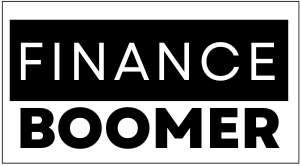Certificate of Deposit: Definition, Advantages & How to Invest in CD
A certificate of deposit (CD) is a type of savings account that offers a fixed interest rate and is provided by banks and credit unions for a specific period of time. Certificate of Deposit offers a higher interest rate than traditional banks, this interest rate is fixed as long as the funds remain untouched for the agreed term. The high interest rate serves as an incentive for giving up the ability to withdraw funds.
If you have funds lying in the bank without yielding any interest, then you should check out some of the advantages of having a Certificate of Deposit.
Advantages of Certificate of Deposit
Certificate of Deposit is a great option for those looking to save money for a long period of time and earn a higher interest on it without the risk of investing it in stocks or keeping it in a traditional account with low to no interest. By understanding the advantages of a CD, you can be better informed about the risks and rewards it offers for your financial goals.
1. Safety
Certificates of Deposit are safe and insured by the Federal Deposit Insurance Corporation(FDIC). Unlike stocks and other volatile assets you are assured of a fixed return on your funds.
2. Higher Rates
Compared to traditional bank accounts, CDs typically have a higher interest rate. Though the difference is that traditional savings accounts have flexible withdrawals, with little to no interest. This can be sorted out by choosing a CD that offers flexible withdrawals and interest.
3. CD Laddering
CD laddering involves opening multiple CDs with different terms to create a staggered investment approach. So instead of putting all your funds into one account for a period of time, you can divide them into different accounts with different terms and withdrawal periods.
4. Guaranteed Returns
CD is non-volatile, meaning you can predict the amount of money you’d be receiving at the end of the term as the Annual Percentage Yield(APY) is fixed. With a Certificate of Deposit calculator, you can insert the amount you have saved and your APY to have an estimate of the amount your funds will yield.
For example, if you have a 4-year CD term with a savings of $3,000 and earn an APY of 1.02%, by the end of your CD term you’d have about $3,124 in your CD.
5. No Monthly Maintenance Fee
There are no monthly maintenance fees with Certificate of Deposits. Unlike traditional savings accounts that may charge you a fee for monthly maintenance, you get to keep all your interest in a CD.
6. Early Withdrawal Option
CDs have the option of early withdrawal, though it comes with penalties like loss of interest and extra charges depending on the financial institution and CD type. For example, the No-Penalty CD allows for early withdrawal without penalties and offers flexibility while still earning interest.
7. Variety
There are different types of CDs available to choose from. Banks, credit unions and brokerage firms offer different CD options that suit your financial goals.
Also Read: 7 Benefits of Managing Your Finances as a Student in Australia
How to Invest in Certificate of Deposit (CD)
To invest in a Certificate of Deposit, you need to open an account. Opening a CD account is similar to that of any standard bank deposit account, the difference being the agreement you sign on paper or digitally. Ensure you compare CD options of various banks and credit unions before signing. After that, you’d need to take the following into consideration;
1. CD Term
This refers to the length of time you intend to keep your funds in the CD. Choose a CD term that fits your financialobjectives. Banks and credit unions offer different CD term options that come with varying features. Ensure you look through the options and select a CD term that best suits you.
Some banks or credit unions have CD terms that span from as little as a month to 10 years or more. The upside to keeping your savings locked up for a longer period, is the higher interest rate that comes with it.
2. Minimum Deposit Requirements
Keep in mind the minimum deposit requirement of the CD before opening an account. This amount varies depending on the financial institution. While some banks have a minimum balance requirement, others don’t require any to open a CD account. Although, a typical traditional CD requires a deposit of $2,500. A jumbo CD for instance requires a larger minimum deposit usually around $100,000 or more.
3. Interest Rates
CDs usually come with higher interest rates compared to traditional savings accounts, that are usually fixed from the start. The interest rate most times depends on the bank or credit union, CD term and interest rate overtime. Research on the interest rates of multiple financial institutions and their CD terms.
4. Financial Institution
Banks and credit unions offer CDs with varying terms and interest rates. Research on the best CD term and interest rate that suits you from different financial institutions. Also, the minimum required amount for opening a CD account largely depends on each institution. Shop around and compare notes to see which financial institution has the best rates and terms.
5. Monitor and Renew
Once you open a CD account, keep an eye on it to determine when it’s matured so you can renew or roll over to a new CD and get a better interest rate.
Also Read: Top 7 Car Rental Companies in Australia
Cons of Certificate of Deposit
While Certificate of Deposits are stable and reliable with fixed returns, they are not without their disadvantages. Here are some cons saving with CDs.
1. Access to Funds
CDs require your funds remain untouched for the duration of the term, as withdrawals are not flexible. In case of an emergency, you may lose even more money than intended if you choose to withdraw your funds earlier.
2. Penalty for Early Withdrawal
CDs are meant to be kept for a longer period, once you decide to take your funds out earlier than the proposed withdrawal date, there are penalties in place for bridging the agreement. These penalties often involve the loss of your interest and extra charges in some cases. It is essential to keep this in mind before opting for a particular CD.
3. Interest Rate Risk
When inflation rises, interest rates may also increase making your existing CDs with lower rates less attractive. The value of your money also decreases over time if inflation exceeds the CD’s interest rate.
FAQs on Certificate of Deposit
1. Are CDs taxable?
Yes, CD interest is regarded as taxable income and must be indicated on your tax return.
2. Can I invest in a CD with a small amount of money?
Yes, many banks offer CDs with a minimum deposit amount as low as $1,000 and even $500.
3. What happens when my CD matures?
You can renew your CD or withdraw the interest and principal. You can also roll over the CD to a new term.
Conclusion
Certificate of Deposit is considered an attractive option for those with a large amount of money seeking higher interests without the risk of investing in stocks and other volatile assets. CDs are secured and reliable but unlike traditional bank accounts, withdrawals are not flexible. They have their advantages and disadvantages. Choose a CD term that fits your budget and refrain from depositing more than you can afford. When making a decision, remember to evaluate CD options offered by various financial institutions.


